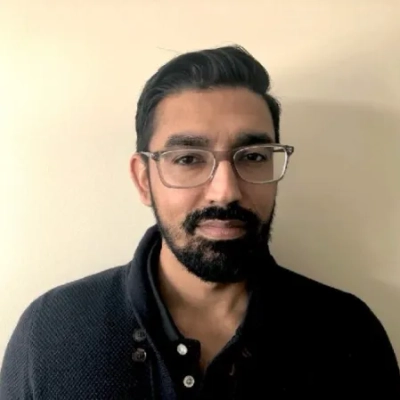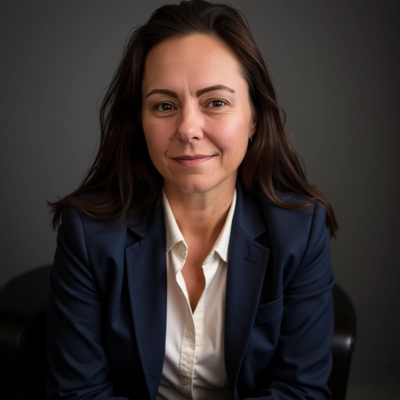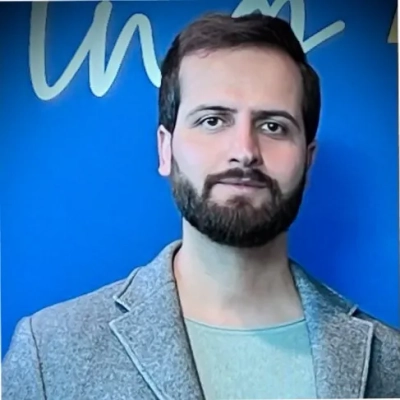15 Unconventional Hiring Criteria That Build Stellar Operations Teams
Building a high-performing operations team requires looking beyond traditional qualifications and résumé checkboxes. This article presents fifteen unconventional hiring criteria that help identify candidates who will truly excel in operations roles, backed by insights from experts in the field. These strategies focus on practical abilities like problem-solving under pressure, self-driven accountability, and the soft skills that separate good operators from exceptional ones.
Hire Those Who Simplify Repeated Tasks
One unusual hiring test that worked well for ops roles was asking candidates to explain a moment when they took a boring repeated task and made it easier for themselves or their team. I wanted to hear how they noticed friction and what small change they made to remove that friction. Some talked about setting alerts to avoid missing steps. Others built a short template to speed up replies. I was not looking for big automation or flashy hacks. I wanted to see if they used simple ideas to prevent repeat mistakes. The people who answered this well usually became the ones who made our internal work feel lighter from day one. They cleaned up messy handoffs without being asked and they even helped other teammates avoid slowdowns before they turned into real problems. This raised the entire team because systems got steadier and projects moved across the finish line with less stress for everyone.

Prioritize Adaptability Over Technical Expertise
One unconventional hiring criterion that has proven effective is prioritizing adaptability over specific technical expertise. While technical skills can be taught, adaptability ensures the candidate can thrive in a fast-changing environment and handle unexpected challenges with ease. During interviews, I assess this through situational questions where candidates must explain how they navigated ambiguity or unexpected shifts in a prior role. For example, hiring a candidate who had no prior experience in SaaS but had excelled in rapidly evolving industries brought fresh perspectives to our operations team.
This person's ability to quickly learn, adapt, and integrate new processes significantly streamlined workflows and increased team efficiency. Such hires often foster innovation and resilience within the team, making overall performance stronger and more dynamic. Adaptability isn't just a trait; it's a long-term asset that drives consistent growth and success.

Seek Composure When Plans Fall Apart
One unconventional hiring criterion I've used for building a stellar operations team is what I call "calm under chaos." Instead of prioritizing only resumes stacked with process certifications or big-brand experience, I looked for candidates who demonstrated composure and clarity when plans unraveled. Operations, at its core, isn't about how well you execute when things go right—it's about how you recover when everything goes wrong.
During interviews, I'd ask a simple but telling question: "Tell me about a time when something blew up on your watch, and what you did in the first ten minutes." I wasn't looking for heroics—I wanted to hear how they thought under pressure, whether they owned the problem, and how they communicated through uncertainty. The people who could stay calm, rally others, and make decisions with incomplete information were the ones who consistently outperformed.
When we built the team around this trait, everything changed. Crisis response times dropped dramatically, and cross-functional collaboration improved because people trusted each other's judgment in tough moments. It also had a ripple effect on culture—meetings became more solution-oriented, and finger-pointing disappeared. The team didn't just execute processes; they stabilized them.
The biggest insight was that emotional steadiness is often a stronger predictor of operational excellence than technical mastery. You can train someone to use a new tool or workflow—but you can't train someone to stay grounded when systems crash, timelines tighten, and tensions rise. Hiring for calm under chaos gave us not just efficiency, but resilience.
Ask Candidates to Teach You Something
One unconventional hiring criterion we use is to have the candidate teach me something, anything they have good knowledge of or are generally good at. I got asked this particular question in a few jobs I applied for and it was one of the things that really stayed with me because it caught me off guard. That experience made me want to incorporate the same method once I started Cafely. I believe this really helped each candidate shine in ways their interview answers and resume couldn't. How they confidently answer the question despite being surprised at first lets me know how well they can think on the spot and confidently communicate their ideas to their colleagues. I find most candidates who pass are usually those who answer as clearly and honestly as possible, which is one indicator I look for as it typically translates into them being a good fit for our company, based on our experience so far.

Find People Who Track Their Own Metrics
We hired individuals who tracked their own productivity metrics rather than waiting to be told what to measure. In interviews we asked how they monitor their own performance, which helped us identify candidates with strong self-awareness and accountability. One applicant shared that they maintained a personal dashboard to track tasks completed and cycle times, evaluating their efficiency.
When they joined our operations team, they brought that mindset, and it inspired a culture of proactive tracking across departments. We soon implemented wider dashboards that made performance data visible to everyone, improving collaboration and reducing workflow delays. The transparency encouraged team members to set their own benchmarks and continuously refine their work processes. The self-measurement criterion ultimately translated into stronger team performance and higher engagement.
Value Curiosity-Driven Project Ownership
Unconventional hiring criterion: Instead of prioritising only technical skill or years of experience, a strong emphasis was placed on curiosity-driven project ownership. Candidates were asked to describe a side initiative they started (inside or outside work), how they navigated ambiguity, and what they learned when things didn't go to plan.
How that translated to team performance:
Those hires took initiative instantly: within the first quarter they launched process-improvement pilots without waiting for directives.
When a major operations workflow stalled because of a system integration glitch, this group formulated a workaround, documented it, and turned it into a standard part of the operations handbook — slashing downtime by roughly half in that segment.
They also brought a mindset of continuous learning, which spread: team members began proposing quarterly "innovation hours", exploring AI-driven automation of routine tasks (aligned to our use of AI tools on the platform).
As a result, operational cadence became more proactive: fewer surprises, faster responses, and smoother scaling when new clients and geographies were added.
This criterion shifted hiring away from "just fit for role" toward "fit for growth-mindset". The team now doesn't just execute — they evolve the execution.
Test for Emotional Agility After Setbacks
One unconventional hiring criterion that proved highly effective centered on emotional agility—specifically the ability to bounce back from setbacks and adapt swiftly to changing priorities. During operations team interviews, a simple scenario was presented: "Describe a time when a project didn't go as planned; what was done next?" Instead of focusing on flawless outcomes, the emphasis shifted to how the person processed the setback and redirected efforts.
This criterion translated into tangible performance gains. Team members who demonstrated emotional agility took initiative rather than waiting for instructions after a hiccup. They re-assessed roles and resources, flagged risks early, adjusted timelines, and kept morale intact. Over a twelve-month period, the operations unit experienced a 30 % reduction in post-launch issue volumes and a 25 % boost in on-time deliveries. The real win: the team developed a reputation internally for resilience, delivering under pressure without constant hand-holding.
Invensis Technologies leveraged this approach to build an operations group that not only executes but adapts—and that shift in mindset makes all the difference.
Look for the Mind Reading Effect
I hire for what I call the mind reading effect — that rare mix of proactivity and intuition that makes someone see what's needed before anyone says it out loud.
In operations, this isn't a nice-to-have — it's the foundation. I look for candidates who naturally anticipate the next step, the follow-up question, or the potential breakdown before it happens. During interviews, I'll ask them how they stay ahead of their clients or team — the ones who light up when talking about "solving before being asked" always stand out.
This approach has shaped an operations team that runs on trust and rhythm. Projects move faster, communication feels effortless, and leadership isn't stuck chasing updates. When your team can practically read your mind — not because they're guessing, but because they're logically thinking forward — performance stops being reactive and becomes seamless.
It's not about control; it's about cultivating people who treat foresight as part of their job description.

Reward Those Who Fix Unassigned Problems
When building an operations team, the common wisdom is to hire for reliability and attention to detail. These are table stakes, of course, but focusing on them exclusively often leads to a team that is excellent at maintaining the status quo—and not much else. A great operations team doesn't just keep the trains running on time; it lays down new, more efficient track while the train is still moving. They are agents of improvement, not just guardians of process. This requires a quality that goes beyond just being organized or diligent.
The one unconventional criterion I've found that separates the good from the great is a demonstrated history of **fixing something that wasn't their job to fix.** I started asking candidates, "Tell me about a time you encountered a small, broken process at a previous job—something outside your direct responsibilities—and, without being asked, you tried to make it better." The answer is incredibly revealing. It's not about grand, strategic initiatives. I'm listening for stories about someone who got tired of a clunky spreadsheet and taught themselves a few formulas to automate it, or who noticed the onboarding packet was confusing for new hires and took an hour to redesign it. This signals an innate sense of ownership and a low tolerance for systemic friction.
This simple trait translates directly into a proactive, resilient team. I remember hiring a junior analyst whose most compelling story was about how she streamlined the coffee ordering system at her last company, a tiny task no one asked her to do. A few months into the job, a critical vendor invoicing system went down. While everyone else was waiting for instructions, she was already digging through old email threads to reconstruct the last known-good data set and had built a simple tracker to manually process the most urgent payments. She saw a problem and just started solving it, assuming it was her responsibility. You can teach someone a new software, but you can't teach them to care about how the whole system works. That's something they bring with them.
Assess a Candidate's Sense of Space
One unconventional hiring criterion we've used at Eyda is assessing a candidate's "sense of space." Instead of focusing only on resumes or traditional experience, we look for people who intuitively understand how design, detail, and emotion interact in a home. This perspective often comes from creative backgrounds, not just operations. The result? Our operations team doesn't just manage logistics; they curate experiences, from sourcing artisan-made textiles to ensuring every product feels personal. That emotional intelligence has directly translated into smoother coordination, fewer errors, and a brand experience that consistently feels human.

Verify Personal Structural Maintenance
The unconventional hiring criterion I used to build a stellar operations team was Verifiable Personal Structural Maintenance. The conflict is the trade-off: traditional hiring focuses on past job titles, which is a massive structural failure because it doesn't predict reliability; I needed to know if a candidate possessed the internal discipline to maintain a demanding, heavy duty career.
This criterion means I specifically look for evidence that the candidate actively maintains a rigorous, non-work-related discipline that reinforces their structural commitment to difficult goals. For instance, I look for dedicated, multi-year involvement in complex structural hobbies like long-distance endurance running, competitive powerlifting, or precision engineering—hobbies that demand verifiable, hands-on structural consistency over time. This is a deliberate trade-off, prioritizing innate discipline over abstract experience.
This criterion translated directly to team performance because it proved the employee possesses the essential structural discipline required to succeed in high-stakes construction logistics. A person who meticulously logs and maintains their own complicated personal pursuit—like a marathon schedule or a weight training regimen—is the same person who will meticulously log material inventory and maintain the structural integrity of a job site. The best unconventional criterion is to be a person who is committed to a simple, hands-on solution that prioritizes verifiable personal structural discipline as the primary predictor of professional reliability.
Assess Pattern Recognition Under Pressure
One unconventional hiring criterion we've used is "pattern recognition under pressure." Instead of only focusing on experience or technical credentials, we assess how candidates spot patterns and make decisions when things go off-script.
During interviews, we present real operational scenarios, for example, a supply delay or a last-minute client change, and watch how they connect dots, prioritize, and communicate under time constraints.
This single criterion has consistently predicted high performers. People who think in patterns adapt faster, make fewer reactive mistakes, and don't panic when the plan shifts. In fact, after applying this approach, our onboarding time for new operations hires dropped by about 25%, and error rates in early project phases decreased significantly.
The takeaway? Skills can be taught, but the ability to recognize patterns and stay composed under pressure is what keeps operations running smoothly when things inevitably get messy.

Test How Candidates Handle Supplier Mix-Ups
One unconventional thing I look for is how someone handles small supplier mix ups during a trial task. I'll give them a fake order with a wrong SKU or a missing carton count and just watch how they react. Some people freeze or wait for direction, but the ones who calmly verify details, ping the "factory," and fix it without fuss usually end up thriving. That habit translated straight into performance at SourcingXpro, especially during big consolidation weeks in Shenzhen. One hire cut our packing errors by almost 19 percent in her first quarter. It's a simple test, but it tells me who can really run ops when things get messy.

Evaluate Calm Clarity in Written Communication
One unconventional hiring criterion I've used — both in my prior operations leadership role and now as we build our own private practice — is "calm clarity in written communication."
In a remote setting, that's not a bonus trait; it's a core skill. During interviews and early communications, I pay close attention to how someone writes: Are their messages grounded and clear? Do they ask thoughtful questions or over-apologize and over-explain? Can I trust their tone with clients?
In previous roles, this single trait made a major difference in the performance of intake and billing assistants. Even when they didn't have the most technical experience, their ability to communicate calmly created smoother handoffs, fewer errors, and a sense of trust across the team. It's now a non-negotiable as we grow Grounded Light Counseling with the same intentionality.

Build Teams With Diverse Soft Skills
Soft skills are so invaluable with operations teams. Personally, I've found it to be invaluable when you have a team that has a variety of soft skills - leaders, great communicators, problem-solvers, creative thinkers, etc. So, when hiring, I like to try to learn what candidates' soft skills are. Hiring a diverse range of these skills helps me strengthen my team.








